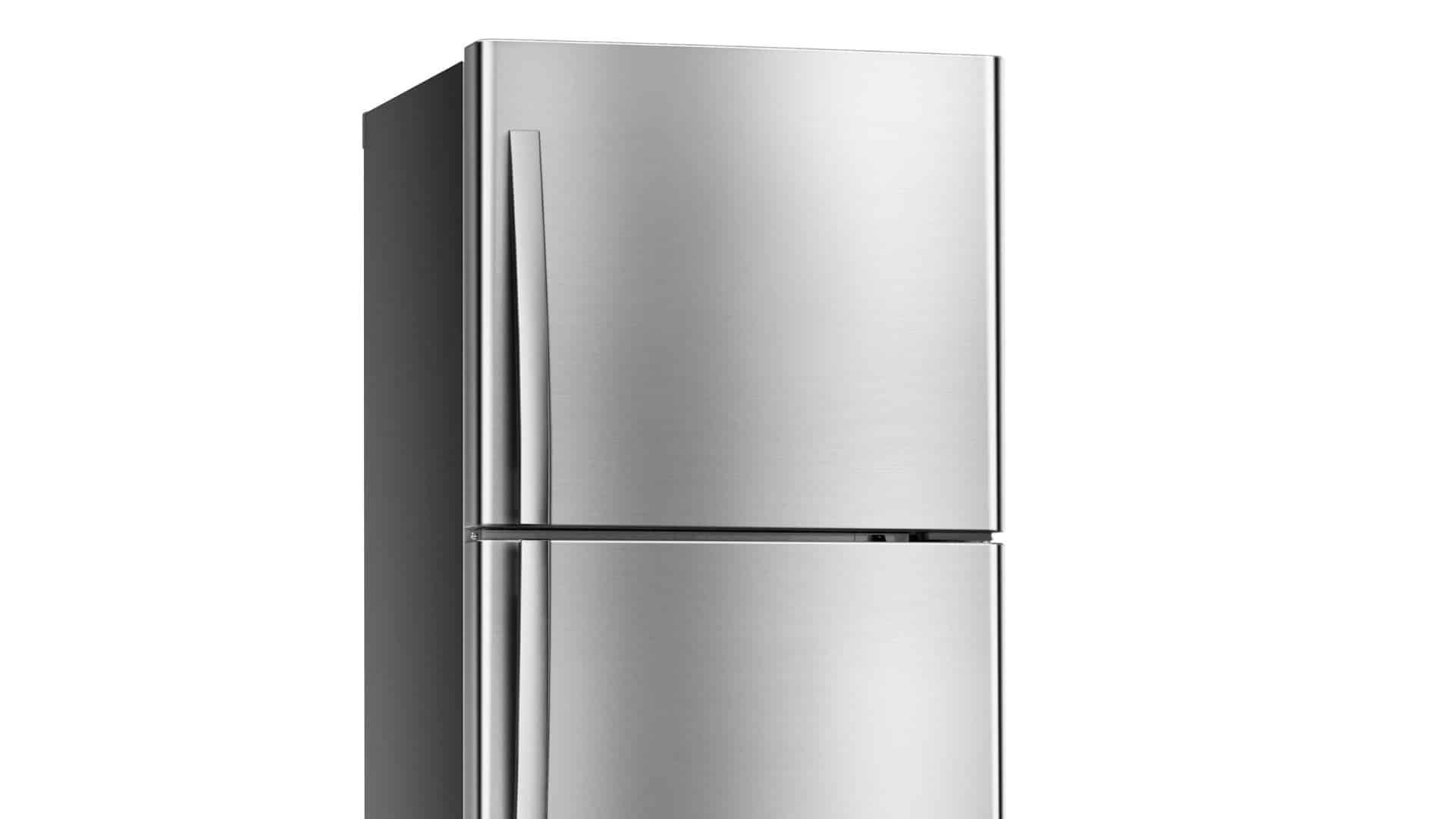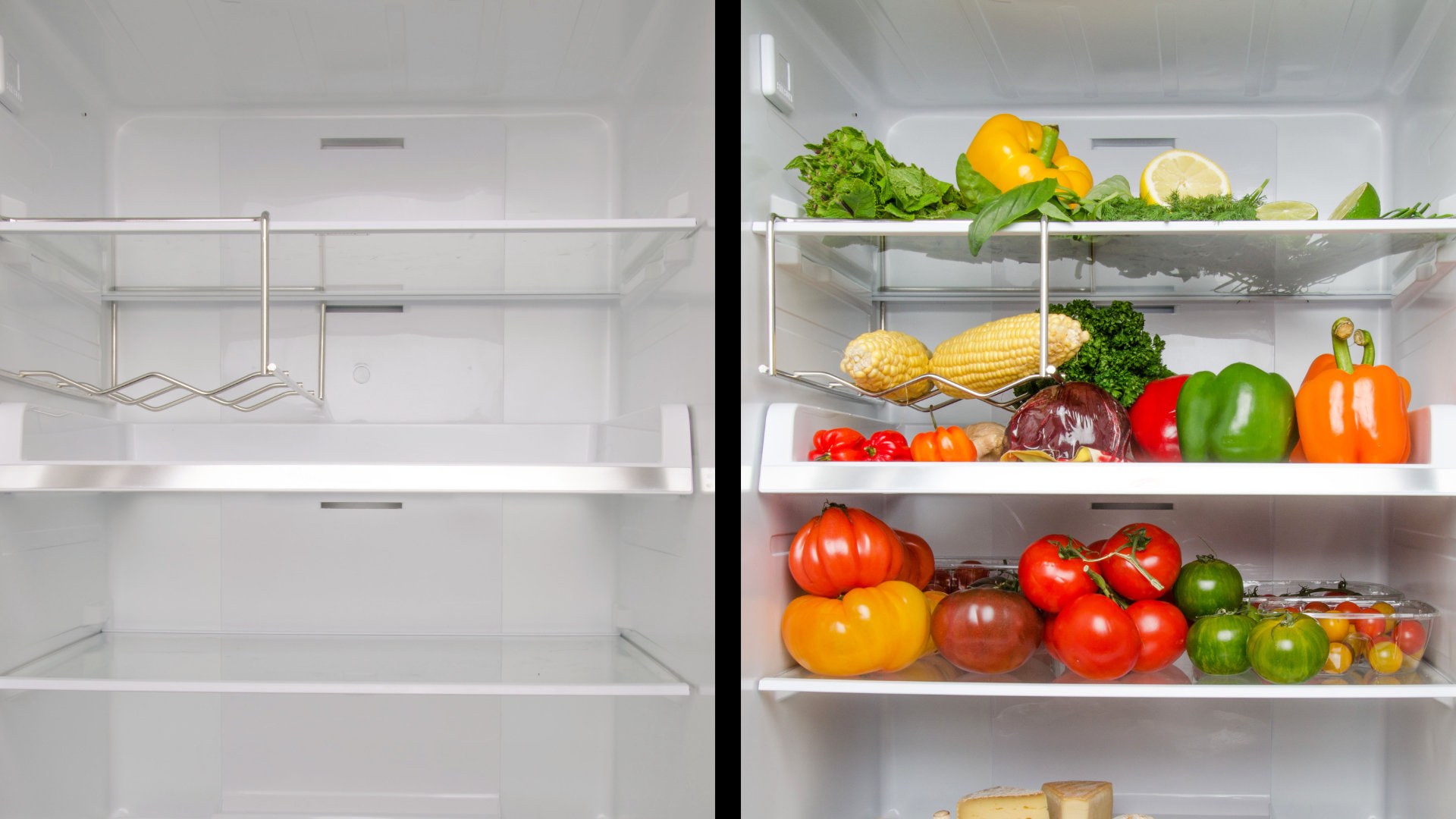
Your refrigerator is a place for fresh food to be kept fresh. Most clear refrigerators full of food smell ever-so-faintly like your favorite ingredients. There might be a crisp smell if you like vegetables or a spicy smell if you keep strong sauces in the refrigerator. Food that is tightly packaged should reveal very little smell.
Strong smells in and around your refrigerator are always a bad sign. At minimum, it means you have an open container. At worst, it can indicate a need for refrigerator repairs. Normally, strong smells in the refrigerator simply indicate that there’s something to clean out. But if you’re not sure, we’re here to help. Whether your refrigerator smells like food and you can’t see why or if your fridge smells like burning, we are here to help.
Strong Edible Food Smells
Starting with the most common issue: fresh foods inside the fridge that are creating an unusually strong smell. Food smells usually come from an unsealed container. Most sealed refrigerator containers like Tupperware and plastic wrap are designed to contain both air and moisture – preventing the food from drying out or from wafting all over the refrigerator. If you are smelling an overpowering or pervasive fresh-food smell inside the fridge, this usually means that one of your containers is open or does not seal.
This is most common with restaurant leftovers. Styrofoam boxes and cardboard takeout containers are often less air-tight than our at-home food storage solutions. So check for takeout first. Then check your Tupperware and plastic wrapped leftovers or ingredients to ensure that each item is fully closed. Check your jars and your produce drawer and trust your nose to tell you what’s open.
When you find what’s open, reseal or repackage it so that the smell (and food freshness) are contained.
Sour or Offensive Food Smell
From there, we need to talk about sour smells. Spoiled food in the fridge tends to smell much more strongly than fresh food. It may be that our noses are more sensitive to rotting food smells or that the air expansion caused by the rotting process push seals open, both are true. If you smell the spoiled or sour smell of food gone bad, it’s time to hunt down and get rid of the source.
Clean out your fridge and find the one or more items that have gone off. Now is also a good time to sort everything in your fridge based on how long it’s been in there. When you find the spoiled food, remove and dispose of it, then toss or wash the container. When it’s done, you’ll likely need to deodorize your refrigerator. Smells aren’t just invisible signs of food, smell is made of particles in the air. Those can linger. Use a baking soda pack and clean the inside of your fridge if necessary.
Burning Dust Smell
One of the most important smells you need to fix is a burning dust smell. Burning dust is a sign that dust has settled onto electrical components in the back or underside of your fridge. The back of a fridge eventually is covered very thickly in dust. This area must remain open for airflow, but that also means that the back of your refrigerator gets dusty, and very dusty over several years.
To resolve the burning dust smell, pull your fridge out from the wall so you can access the back. Use a combination of dusting and the hose attachment of your vacuum to clear away the dust. When you reach the coolant coils, use a condenser brush to carefully clear the dust away from the coils. Fully clear away the dust both underneath and behind the fridge.
Rotting Vegetable Smell
Rotting vegetables are a little different from spoiled leftovers. Most of us keep vegetables as ingredients in the lower crisper drawers of the fridge. If an ingredient goes unused for too long, it may begin to decay. Sometimes, vegetables decay from the bottom up – where only the part touching the bottom of the drawer goes bad – but this still creates a wet rot, a bad smell, and the potential to contaminate the rest of your vegetables.
Clear out your crisper drawers if you smell a rotting or unusually strong organic smell. If most of your vegetables are fine, identify the one item that is going off. It’s possible that you can cut off the decaying section and wash the rest. Anything that has touched or been stored next to the vegetable rot, cut or remove the outer layer and wash everything. Then wash your crisper drawer before refilling with ingredient vegetables.
Grocery store produce bags are designed to reduce vegetable rot, so prioritize their use over Tupperware or loose veggies.
Hot Plastic Smell
Hot plastic or metallic smell is another alarming issue that must be solved quickly. If you smell the scent of scorching electronics, track that down quickly. You may need to unplug your fridge and call for repairs immediately. If you are handy, you may be able to find the source of the scorching and remove/replace the part. However, if you are not experienced in refrigerator repair, the smell of hot plastic or wires should always be met with calling a technician. Stay safe. Turn off your fridge if there’s a risk that the electronics are overheating inside.
Lingering Smells After Cleaning
Last but not least, let’s talk about smells that shouldn’t be there. If there is an unpleasant odor and you can’t find the source, the next step is to fully clear everything out of your fridge. Once you’ve done that, if there’s still a smell in the fridge, this means that the particles that create the smell have settled into the plastic cabinet and shelving. Fortunately, you can fix this.
Start with vinegar. Wipe down the entire inside of the fridge with a warm vinegar mixture – using white vinegar and hot water. From there, use a mixture of dish soap, hot water, and borax. You can also scrub the plastic surfaces with baking soda and clean any glass shelving with multi-surface cleaner.
Leave a fresh baking soda pack in your fridge and consider allowing the cabinet to air for 30 minutes while your food remains in a cooler.

How to Fix the Whirlpool Washer F9 E1 Error Code
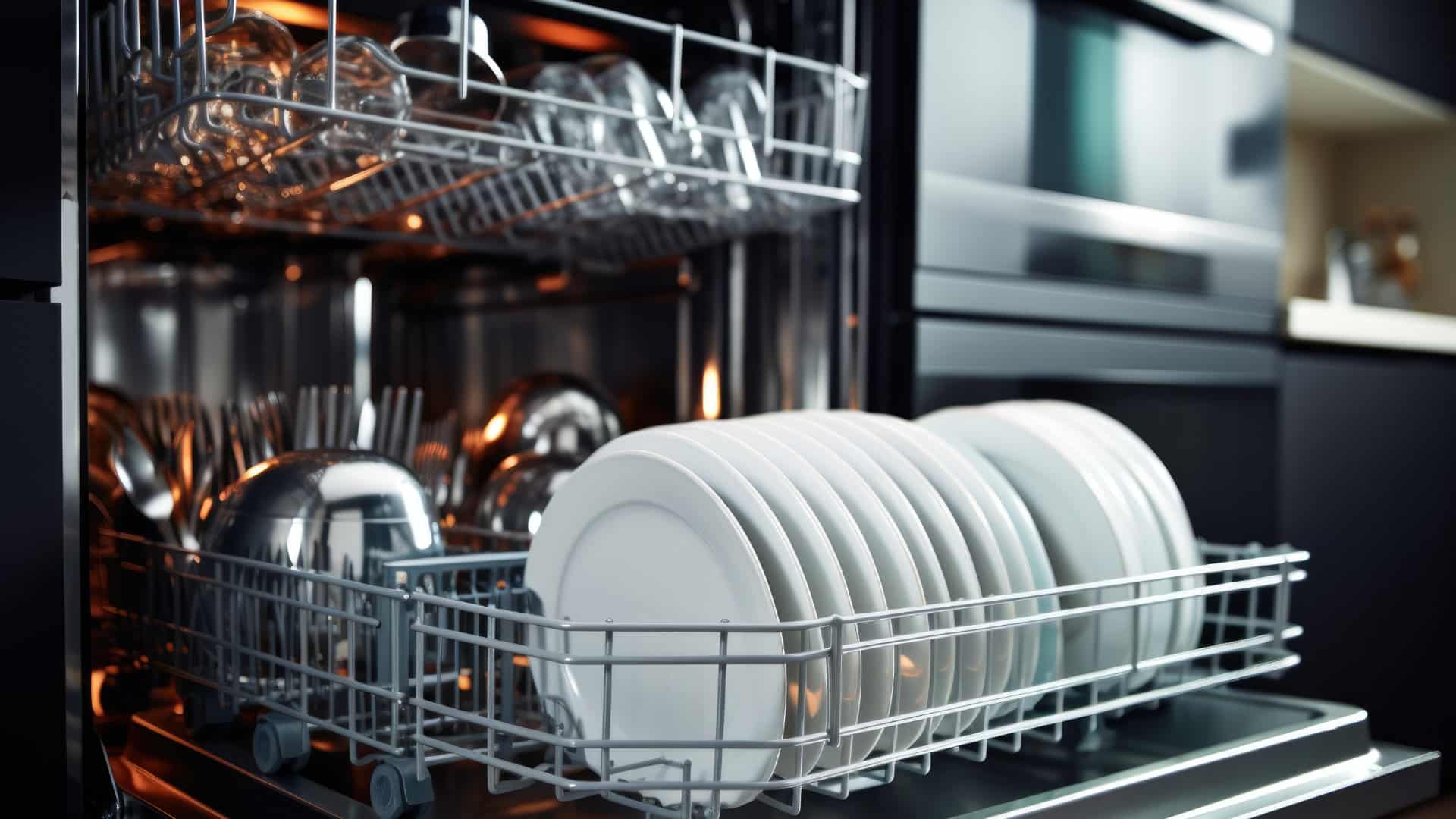
How to Solve Frigidaire Dishwasher Lights Blinking

Resolving the LG Washer UE Error Code (3 Easy Fixes)
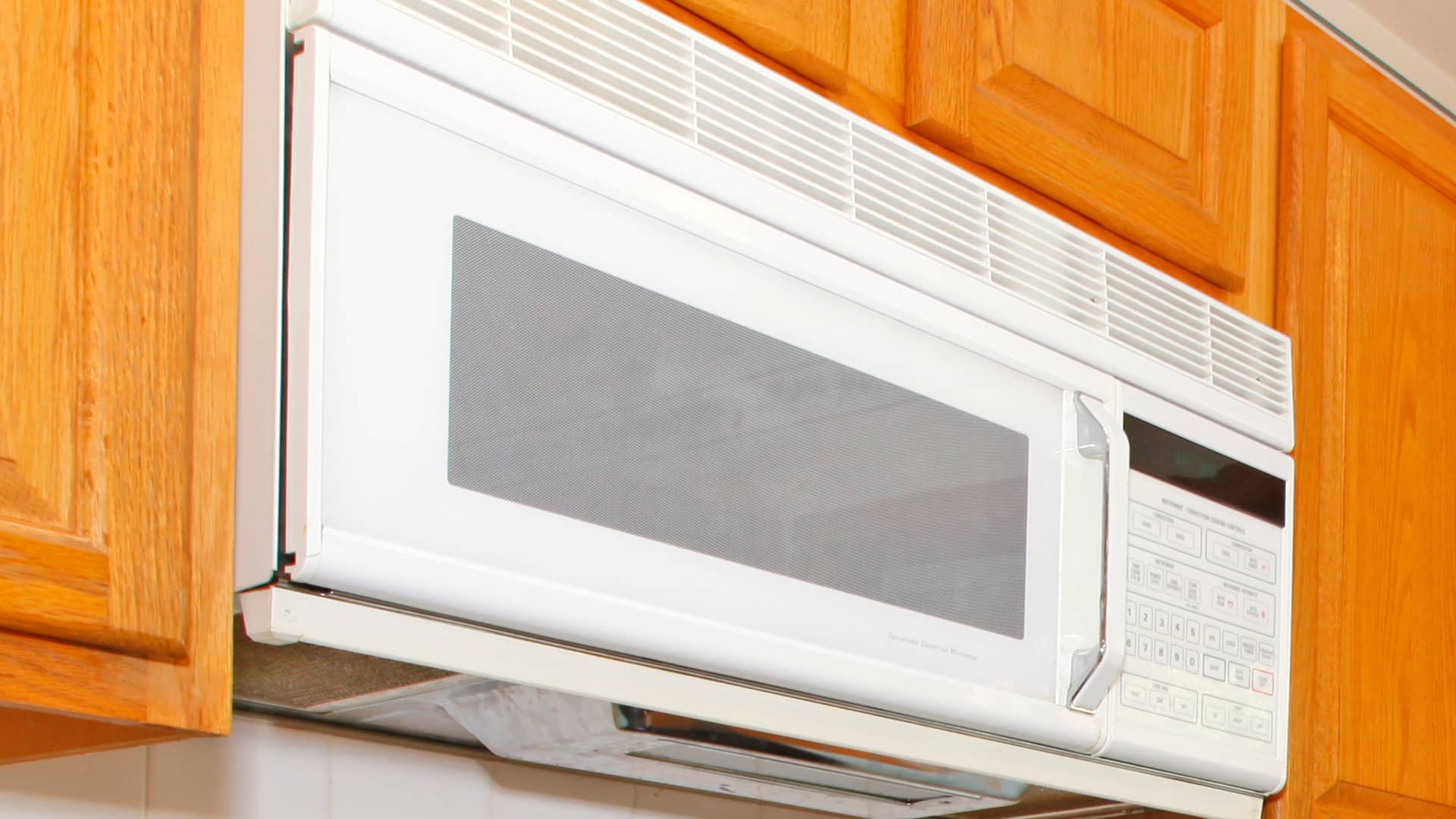
Replacing an Over-the-Range Microwave with a Range Hood
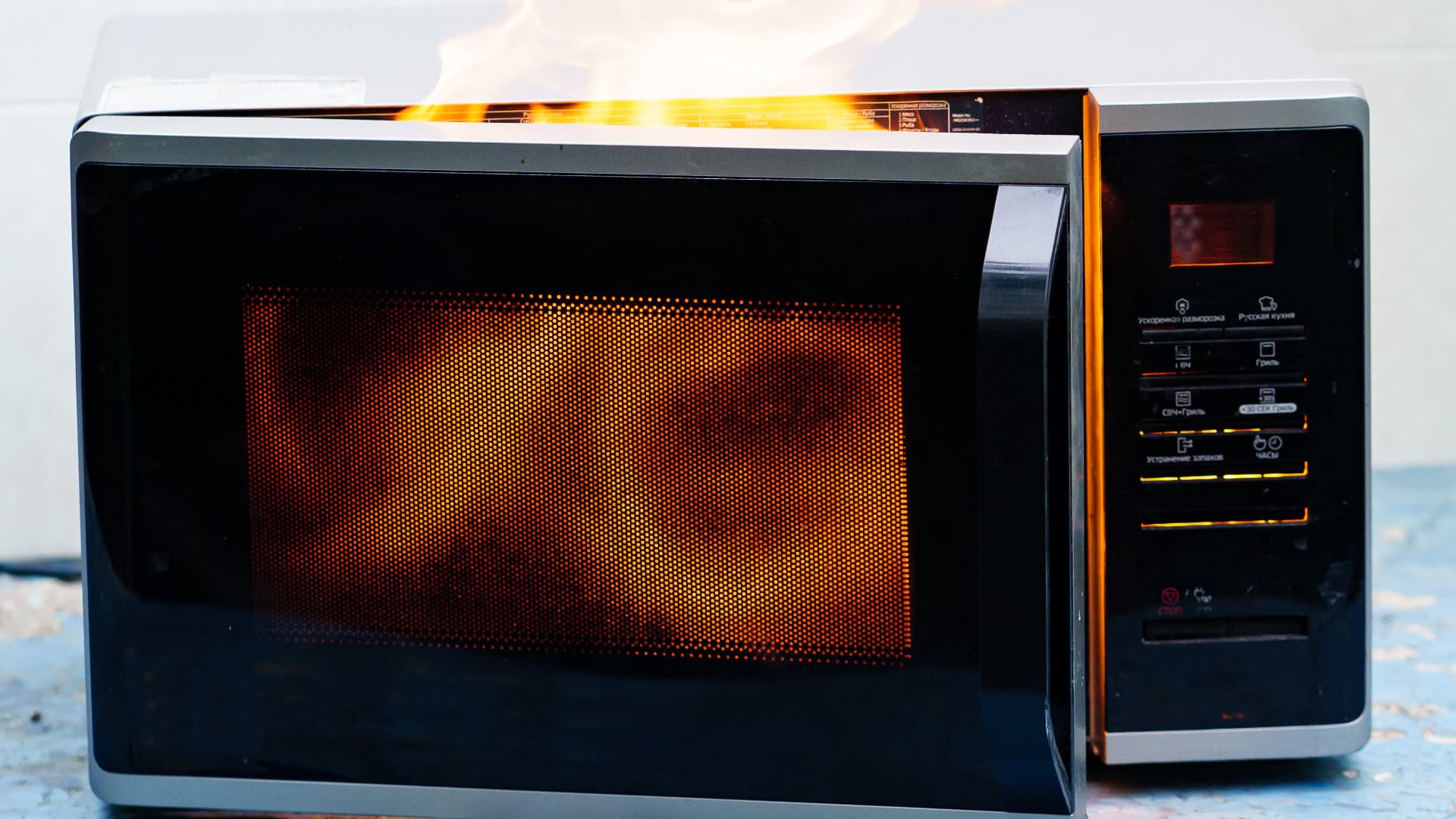
How to Get Burnt Smell Out of Microwave (In 2 Easy Steps)
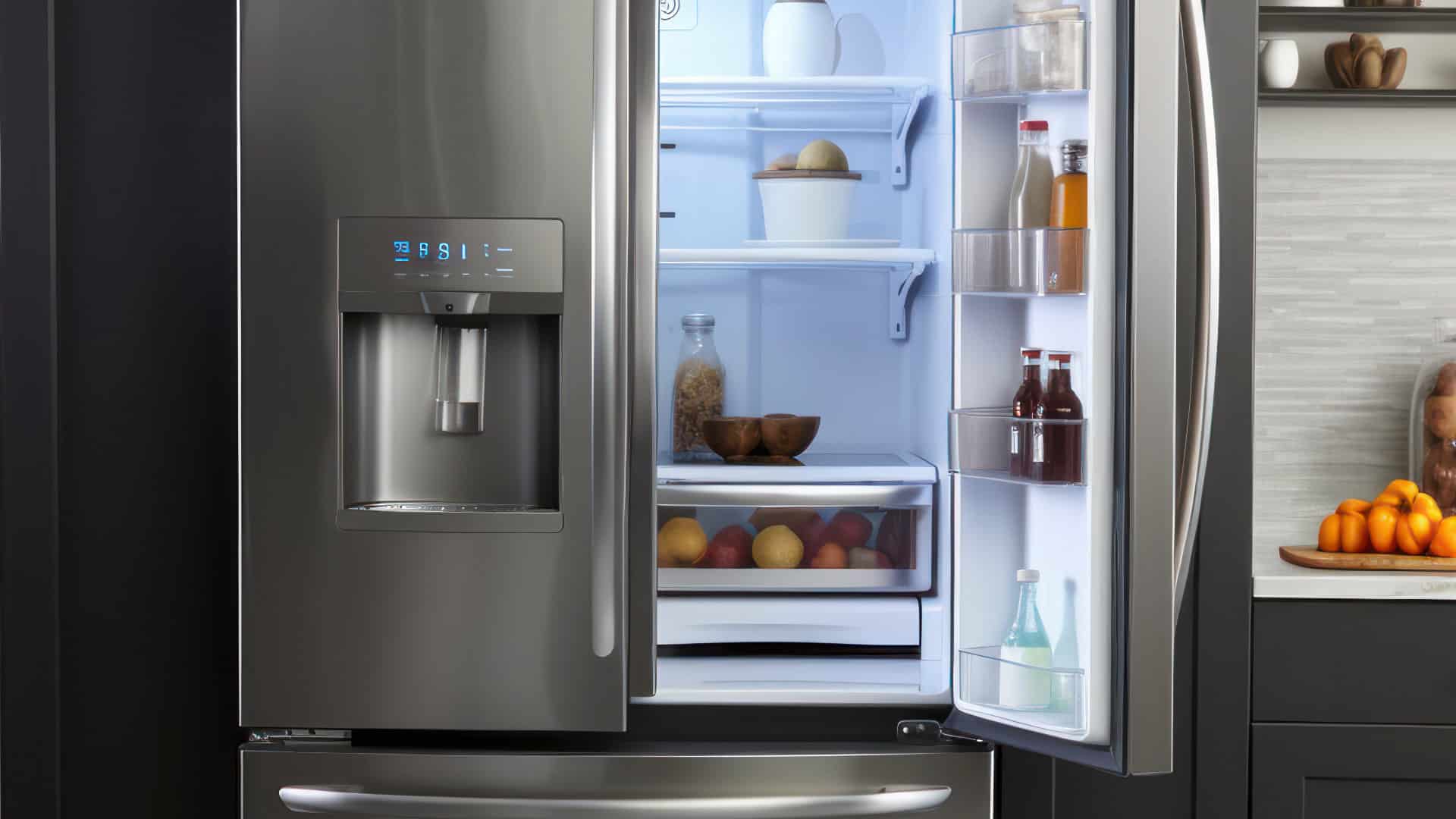
7 Reasons Why Your Bosch Ice Maker Is Not Working
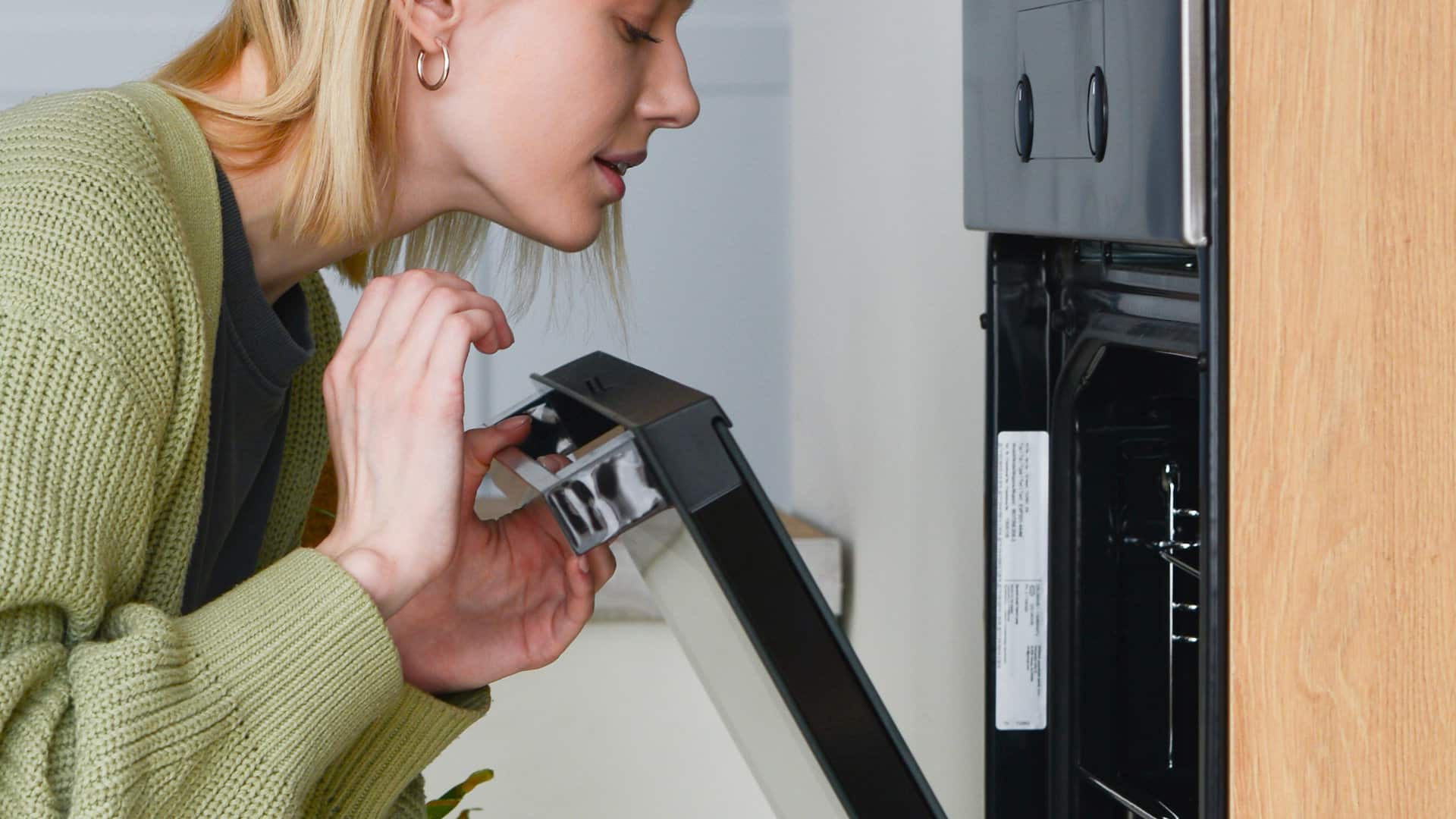
Why Does Your Self-Cleaning Oven Smell?
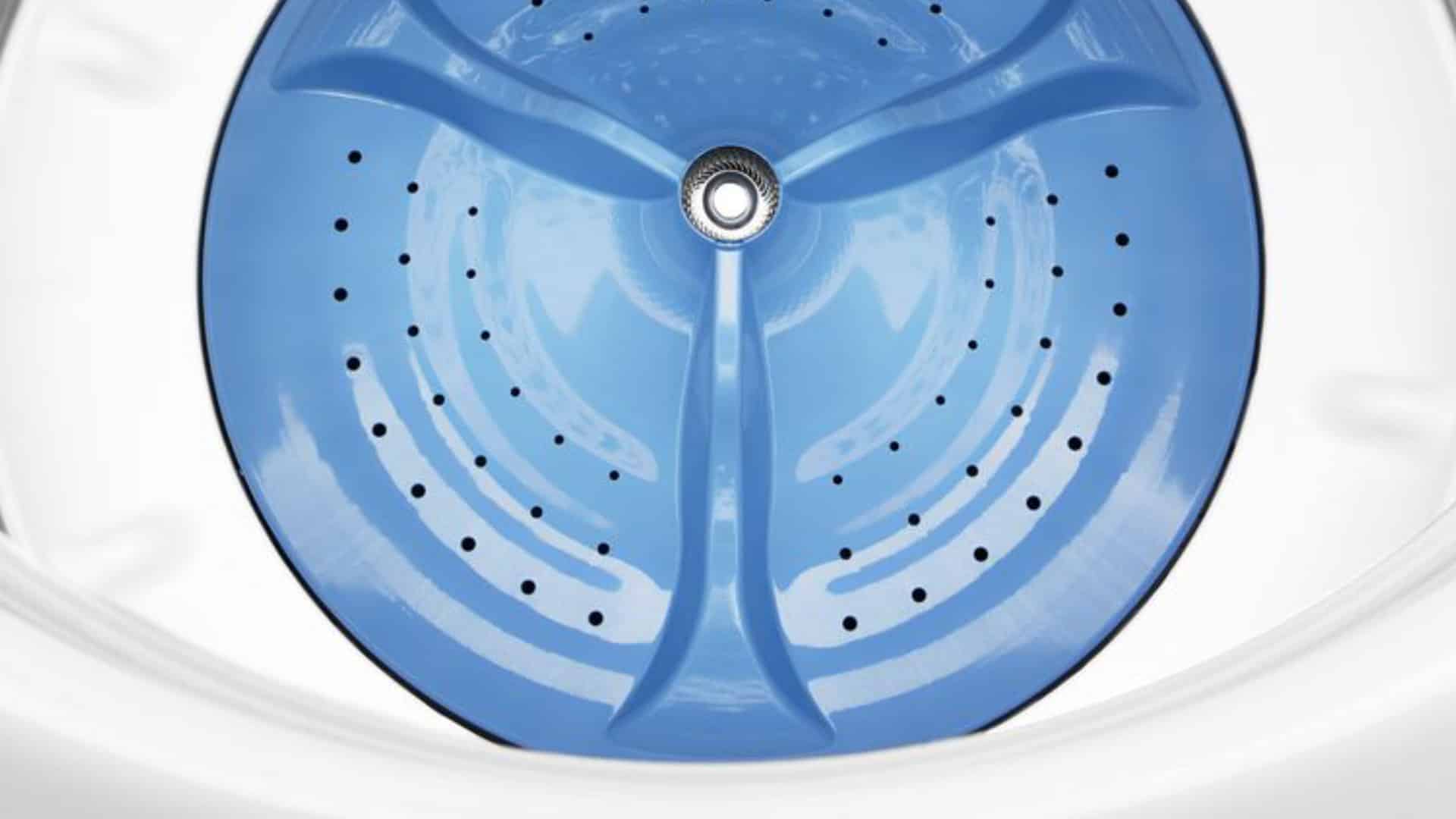
Why Is Your Whirlpool Cabrio Washer Not Spinning?
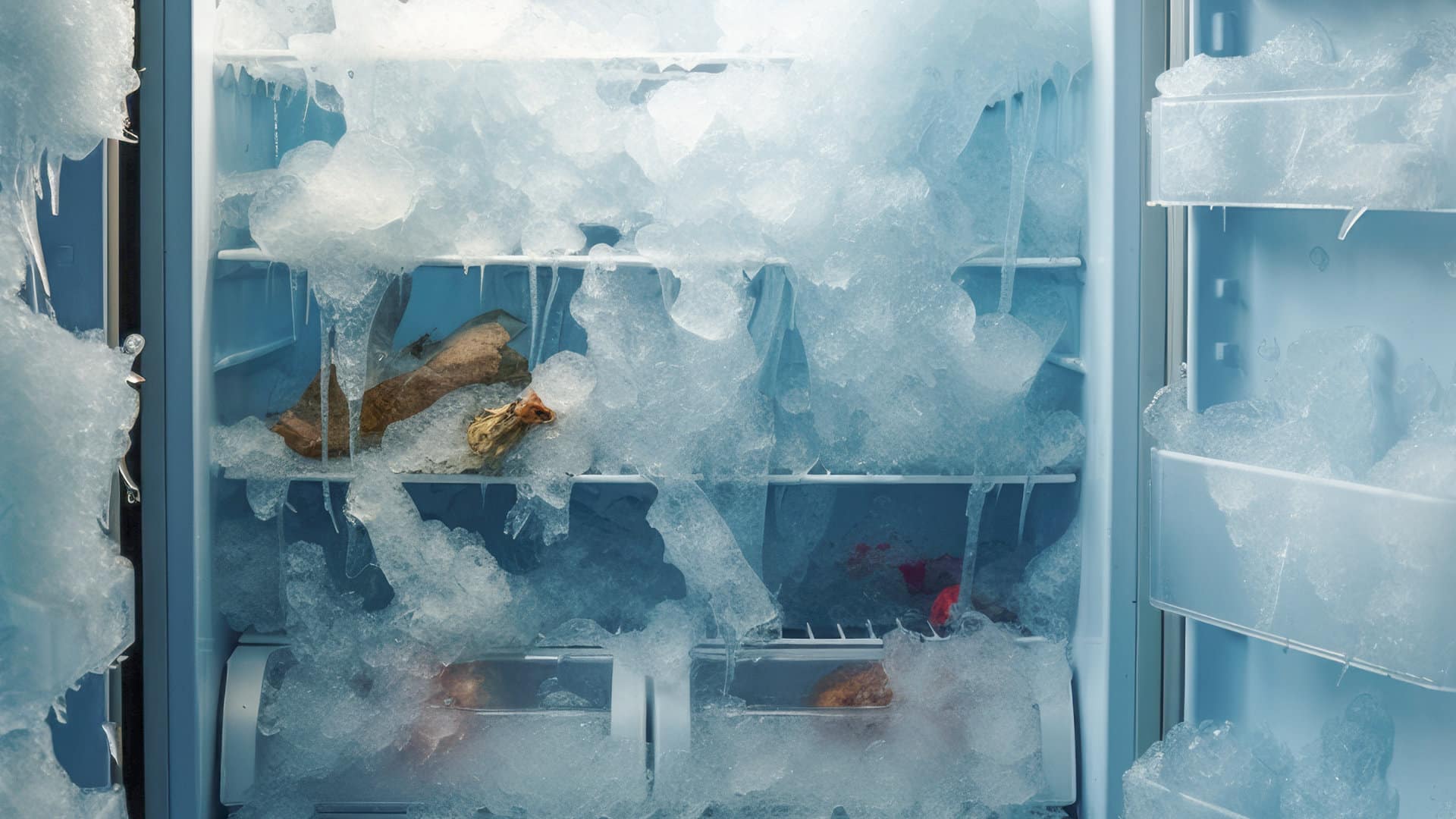
Why Does My Refrigerator Make Noise?
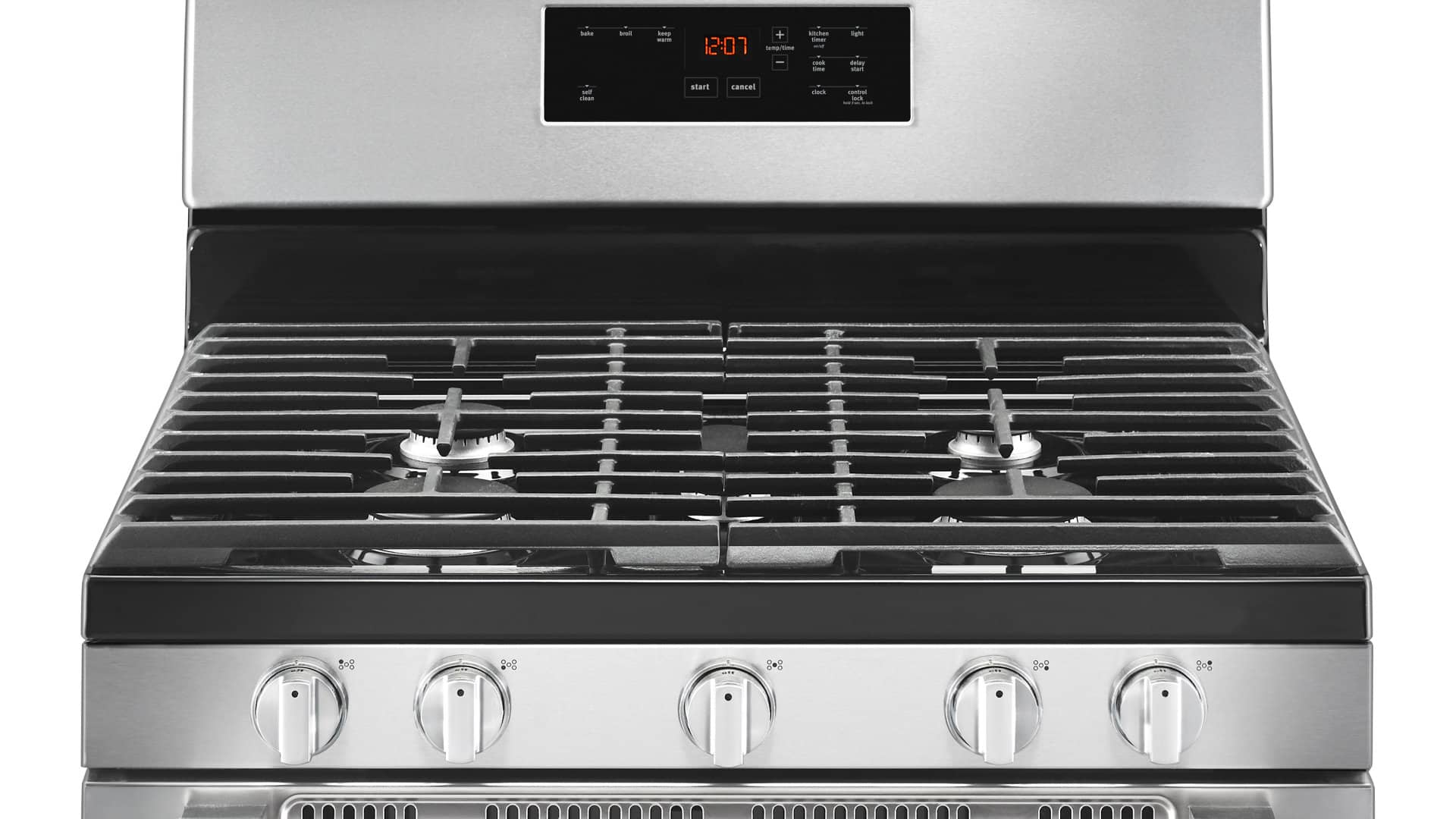
Troubleshooting the F2 Error Code on a Whirlpool Oven
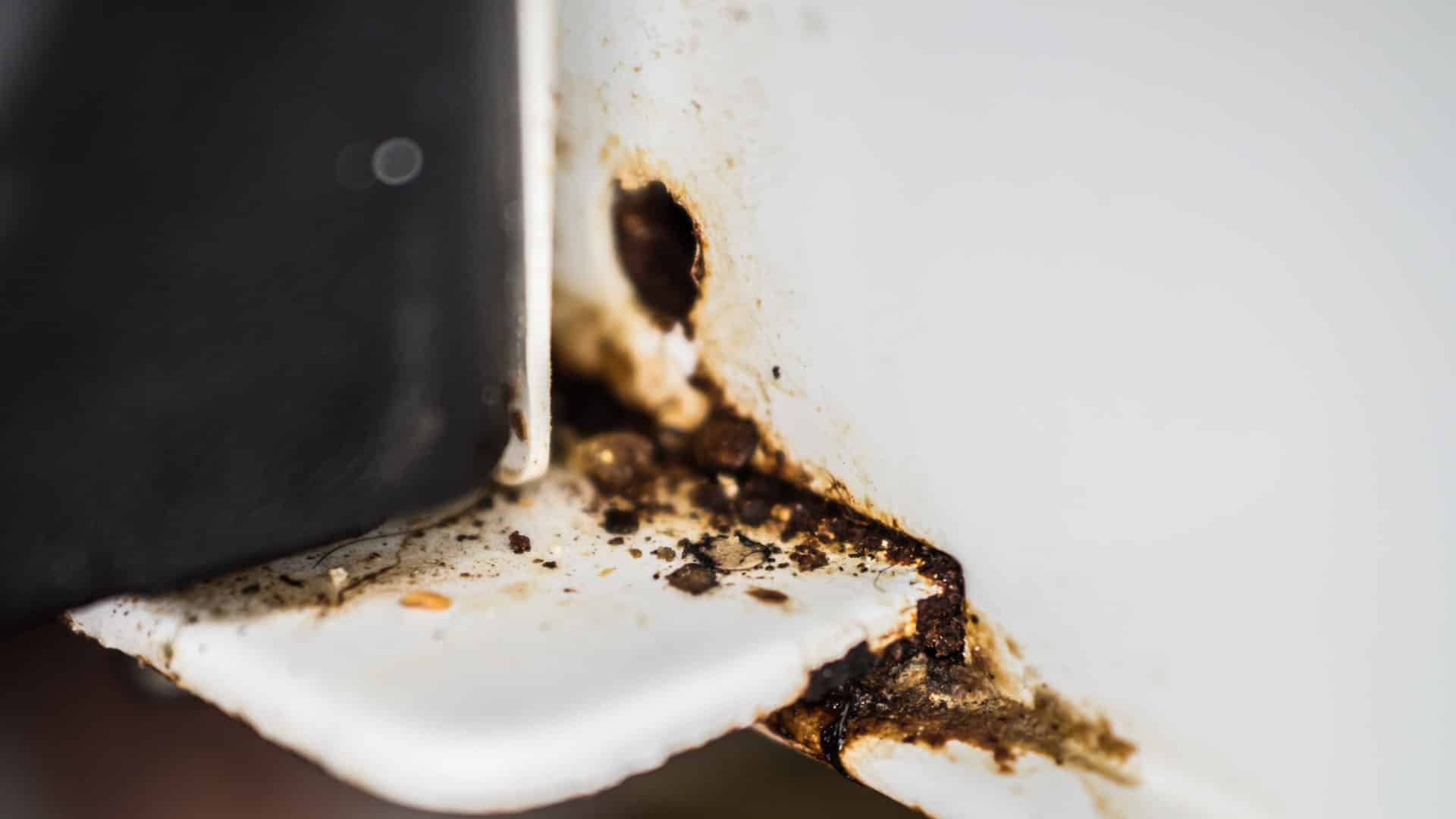
Rust Inside Microwave: Causes, Fixes, and Prevention Tips

4 Ways to Get Smell Out of Dishwasher

7 Steps to Fix a Whirlpool Oven Not Heating
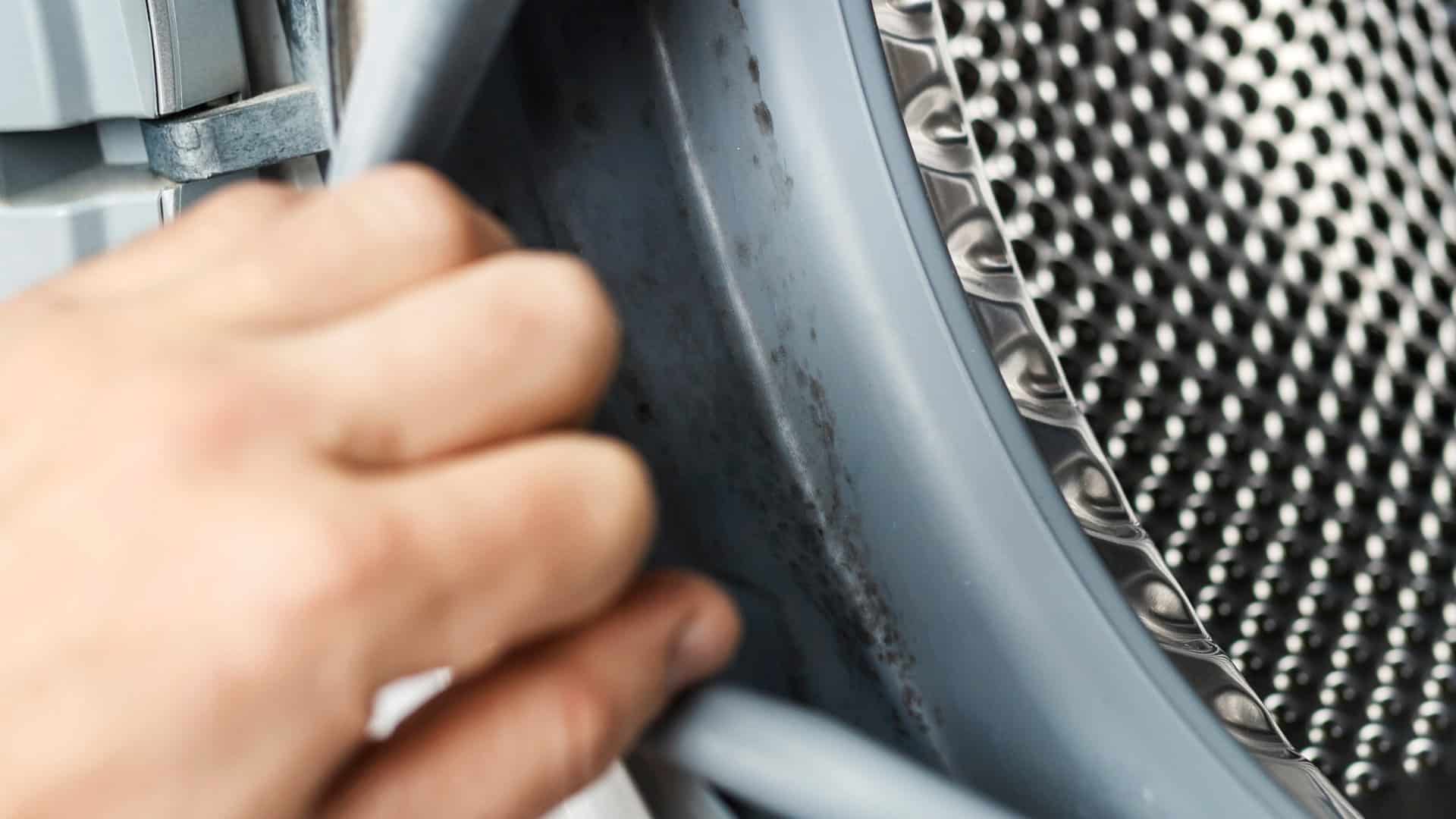
What to Do When Your Washing Machine Smells Like Rotten Eggs
